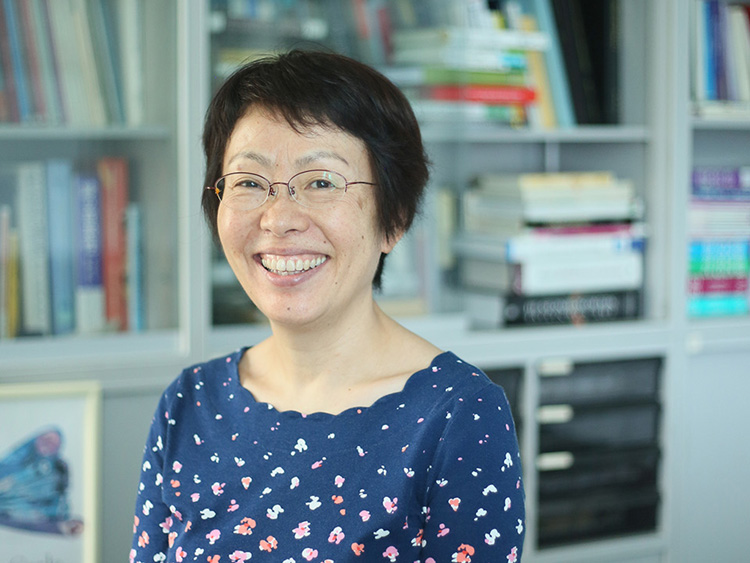About Research
- Title of Project
- Project Leader
- Purpose and Background of the Research
- Research Methods
- Expected Research Achievements and Scientific Significance
- Publications Relevant to the Project
Title of Project
Compensatory contribution of linguistic and social factors for early language acquisition: Cross linguistic study between European and Asian languages
(MEXT Grant-in-Aid for Specially Promoted Research: Grant number JP20H05617)
Project Leader
Reiko Mazuka
Language Development Subgroup of Laboratory for Molecular Mechanism of Brain Development
RIKEN Center for Brain Science

Purpose and Background of the Research
Cumulative research with Japanese infants by the PI and others have found that Japanese infants seem to lag behind their English-learning peers in various tasks on phonological development, such as phonemic discrimination and word segmentation. To test a hypothesis that Japanese infants are the exception, the PI has conducted a series of studies to compare 4 Asian languages; Japanese, Thai, Korean and Cantonese. The results showed that infants learning the other Asian languages were like Japanese: they also lag behind infants learning Western languages. Given the four languages varied in their syntactic and phonological characteristics it is difficult the lag to the linguistic characteristics of these languages. In vocabulary development as well, a similar lag has been reported in Japanese and Korean children – their vocabulary at 20 months is approximately at the level of 18 months in English learning children. The objective of this study is to investigate why such a lag occurs.
Research Methods
We hypothesize that the differences in communication styles between Western and Asian cultures impact the process of word-learning and vocabulary growth, which in turn impact the phonological development. In particular, we assume the social cue that are important for word leaning, such as joint attention, contingency, and sensitivity to communicative affect by the way mothers communicate with infants and impact their vocabulary development as well as phonological development.
International team of researchers at Simon Frazer University in Canada (English), CRNS in France (French), Thammasat University in Thailand (Thai), National Singapore University (Singaporean Chinese), and Chung Ang University in Korea (Korean), and RIKEN (Japanese) will test infants learning these 6 languages from 5-months to 18-months of age on various tasks that examine infants’ phonological development, sensitivity to social cues, such as joint attention. Infants' ability to learn word order from the input in a statistical learning task will also be tested. Mothers' communicative styles will be examined by analyzing their speech directed to infants. When infants reach 24 months of age, their vocabulary will be measured by a standardized vocabulary test. The correlation between infants' vocabulary size and the outcome of each of the phonological, social cues, and word order task will be examined to determine which factors would best predict the vocabulary size, and whether languages differ in their correlation pattern.
Japanese infants will be tested primarily at RIKEN, but also at University of Tokyo, Chuo University, and Osaka University. National Institute of Japanese Language and Linguistics will carry out the analysis of mothers’speech directed to infants.
Expected Research Achievements and Scientific Significance
The outcome of the current project has the potential to challenge some of the most basic assumptions and concepts in the field of language acquisition. If the prediction of this project is supported by the experiments, and shows that language can be acquired in differing ways, it challenges the basic assumption our field that "human language is acquired in the same way." In particular, if the difference can be caused by culture, it opens possibilities for other non-linguistic factors to impact language development.
Publications Relevant to the Project
- Tsuji, S., Mazuka, R., Cristia, A., (2020)
"Communicative cues in absence of a human interaction partner enhance 12-month-old infants' word learning."
Journal of Experimental Child Psychology. - Shin, M., Choi, Y., & Mazuka, R. (2018)
"Development of fricative sound perception in Korean infants: The role of language experience and infants' initial sensitivity."
PLoS One, e0199045.


